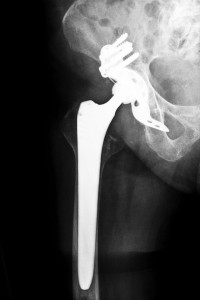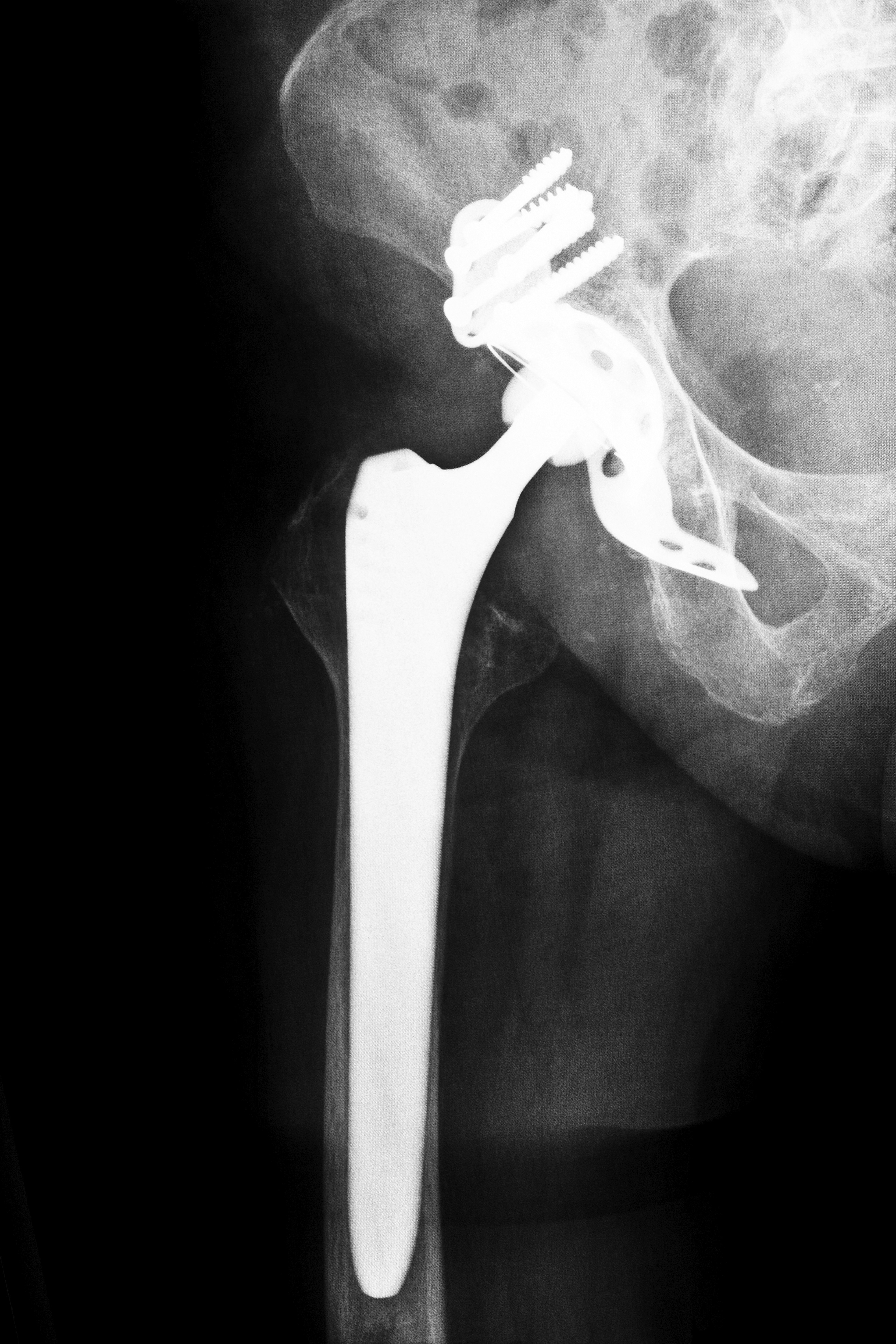 A hip replacement procedure is a surgery in which the damaged hip joint is removed and replaced with an artificial device. The goal of a hip replacement surgery is to relieve pain, improve the function of the patient’s hip joint and increase mobility. An estimated 332,000 hip replacement procedures are performed each year in the U.S.
A hip replacement procedure is a surgery in which the damaged hip joint is removed and replaced with an artificial device. The goal of a hip replacement surgery is to relieve pain, improve the function of the patient’s hip joint and increase mobility. An estimated 332,000 hip replacement procedures are performed each year in the U.S.
People with damaged hip joints that are suffering from pain and are unable to complete daily activities may be candidates for hip replacement surgery. While osteoarthritis is the most common cause of hip damage, rheumatoid arthritis, osteonecrosis, fracture, injury and bone tumors may also contribute to the breakdown of a hip joint. Many patients who decide on a hip replacement procedure include those who have:
- Inadequate improvement after having tried mobility aids, the use of assistive devices and physical therapy
- Unsatisfactory relief from pain medications
- Unsatisfactory relief from NSAIDs
- Joint stiffness that affects lifting the leg or moving
- Hip pain that persists when resting
- Hip pain that interferes with usual activities involving bending and walking
There are several types of hip implants available for patients requiring a replacement surgery, including ceramic-on-ceramic, ceramic-on-metal, metal and plastic and metal-on-metal. Each of these procedures has its own benefits and drawbacks, so it is important to consult with your healthcare provider to find the implant that is right for you. According to the Journal of the American Medical Association, the price of a hip replacement procedure ranges drastically from $11,000 to $125,000. However, the true cost of these procedures may remain unknown.
In terms of recovery time, patients do not typically spend more than three to five days in the hospital following a hip replacement procedure. However, full recovery may take between three and six months, depending on the success of the patient’s rehabilitation, the patient’s overall health and the type of surgery.
Lawsuits and Dangers of Hip Implants
The complication rate for a complete hip replacement rate is low, according to the American Academy of Orthopedic Surgeons. While fewer than two percent of patients experience serious complications, including infection of the joint, the most common problem is the formation of blood clots in the pelvis or leg veins. However, other potential complications may include:
- Dislocation
- Stiffness or residual pain
- Bleeding
- Fracture
- Blood vessel or nerve injury
- Early hip implant failure
Many patients throughout the U.S. have reportedly sustained injuries following a hip replacement procedure. As a result, these individuals may consider working with a hip implant failure attorney in Arkansas to learn more about their legal rights and how to go about pursuing a claim for compensation. In many cases, patients reported early hip implant failure and were required to undergo revision surgeries to remove or replace the device.
Several manufacturers including DePuy Orthopaedics and Stryker Orthopedics have been named as defendants in lawsuits regarding their allegedly defective hip replacement systems, and both companies have recently reached settlements pertaining to plaintiffs’ claims.
Have You Experienced Hip Implant Failure in Arkansas?
If you or someone you love suffered from hip implant failure or other serious complication and you would like more information about filing a lawsuit in Arkansas, contact Attorney Group for Arkansas. We can provide you with a free case evaluation and connect you with an affiliated hip implant failure attorney in Arkansas who can assist you throughout the legal process.






